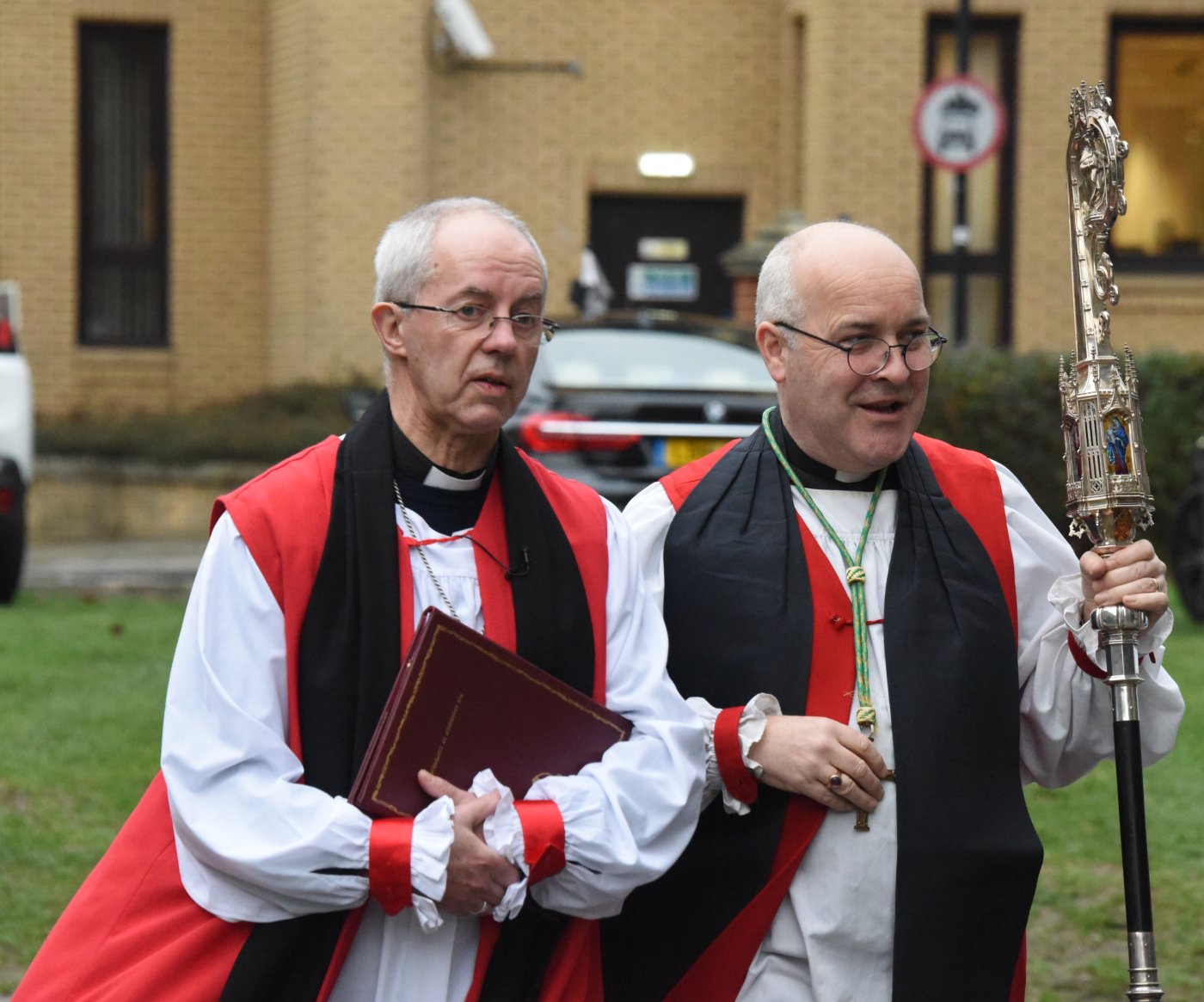Schools aren’t there to save the church
Posted: Thu, 22nd Jul 2021 by Stephen Evans
The Church of England's new evangelical missional strategy should lead us to question its entitlement to proselytise in schools, argues Stephen Evans.
This article is available in audio format, as part of our Opinion Out Loud series.
In a bid to reverse the precipitous decline in Anglican affiliation, archbishop of York Stephen Cottrell has come up with a plan to "revitalise" the ailing Church of England.
Cottrell's "Vision and Strategy" paper proposes setting up tens of thousands of 'worshipping communities', essentially led by the evangelical laity. The plans reflect the growing influence of evangelicalism within the church under Justin Welby's tenure as archbishop of Canterbury.
The plans have caused considerable consternation amongst the clergy. Much of this stems from the apparent desire to deprioritise the parish system in favour of 'groovy' house churches led by lay people rather than priests. Writing in Church Times, Andrew Brown called the plan a "suicide note", likening the proposals to the church "tearing off its buildings and its priests, and rushing stark naked into a world that couldn't care less".
But given the church's privileged and prominent public role, it isn't only the Anglican faithful that should be perturbed. The new evangelical surge will ring alarm bells for anyone concerned about religion's propensity to impose itself where it isn't wanted.
Speaking in the Synod, Prudence Dailey, a lay member for Oxford Diocese, said the church needed to "reach people where they are".
One place where impressionable people are, of course, is in school.
Unsurprisingly, the Church of England's vision is very much focused on children and young people. According to the archbishop of York, his strategy will involve a "bolder commitment to Christian education and ministry with children, young people and students". He says he want to "double the number of children and young active disciples in the Church of England by 2030". To achieve this there will be a "particular emphasis on work with children and young people" and full utilisation of "the resource and opportunity of our church schools."
But the church's ambitions extend beyond church schools. The C of E's 'Vision for Education' document from 2016 makes clear its intention to influence the education of children and young people in community schools, independent schools, sixth form colleges, FE colleges and universities.
Utilising state-funded education for evangelical purposes is educationally inappropriate and insensitive to the diversity of religion and belief in modern Britain. But a combination of desperation and missionary zeal within the church means it will stop at nothing in trying to save itself.
The church does of course have every right to "spread the good news" or "make Christ known", as Cottrell puts it, but it shouldn't have the right to do this via state-funded education. Unfortunately, politicians' bias towards the status quo and their seemingly unshakable deference to religious interests means they lack the backbone to stand up for this important principle.
Despite church attendance falling 40% in the last 30 years, the Church of England's role in state education has increased. In part thanks to Anglican bishops' unique ability to shape legislation, and parliament's and the government's unwillingness to challenge the church on anything, the legal framework that underpins England's schools is ill-equipped to stand up to inappropriate evangelism. In fact, it positively supports it.
For a start, the government continues to fund faith schools, which are run by religious groups to advance their own interests whilst providing state education. The Church of England controls over four and a half thousand state-funded schools in England. So many in fact that almost three in ten families have little or no option other than a church school. Academisation has also allowed churches to expand their reach beyond faith schools and increase their influence over all schools, including those with no religious character.
Religious education, once the only compulsory subject, remains mandatory for all pupils in state-funded schools, despite being unpopular and having an unclear educational purpose. Controlled by religious interest groups, the subject provides yet more space for the promotion of faith. Schools with a religious character still teach RE confessionally, with little pretence of it being objective, critical or pluralistic.
And, inexplicably, the law still requires schools to provide a daily act of broadly Christian collective worship, providing evangelicals with yet another platform to impose Christian faith and practice on pupils.
Despite all of the above, just one per cent of 18–24-year-olds say they identify with the C of E.
Nevertheless, undeterred, the Church of England is placing young people right at the centre of its new missionary offensive in a last-ditch attempt to resurrect itself. Cottrell insists his vision is not motivated by the "downward sloping graphs" but by a desire to share "the abundant life we have in Christ" with "everyone". Either way, he apparently sees easy access to children and young people through state-funded schools as a God-given right.
An institutionally homophobic organisation with a missionary zeal is hardly an ideal provider of state education in one of the world's most secular and religiously diverse nations.
Children, like adults, should be afforded freedom of religion or belief – a right protected by article 14 of the Convention on the Rights of the Child. Allowing schools to be used as mission fields undermines young people's freedom of thought, conscience and religion. That's why the National Secular Society will continue to lobby for an inclusive, secular education system that protects pupils from evangelicals of all religious stripes.
And as an increasingly influential evangelical strand of Anglicanism takes hold, the time is right to rethink the Church of England's privileged role in state education, not to mention its established status as the national church.
Picture: Justin Welby (left) and Stephen Cottrell, fourthandfifteen, CC BY 2.0, via Wikimedia Commons
While you're here
Our news and opinion content is an important part of our campaigns work. Many articles involve a lot of research by our campaigns team. If you value this output, please consider supporting us today.











